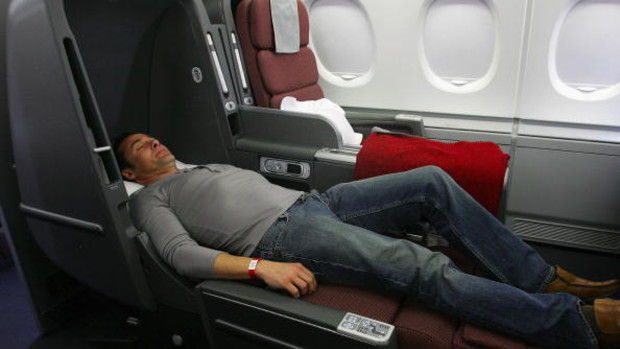Air travelers get the misery they're paying for

By Bloomberg View
I hardly need to tell you that flying these days is a miserable experience. In fact, it's so miserable that it's tempting to suspect that the suffering is deliberate - - that airlines are making us miserable as part of a calculated strategy to extort more money from us.
Tim Wu has given in to that temptation. In an article at the New Yorker, he argues that everything we hate about modern air travel-- the tiny seats, the baggage fees, the exorbitant cost to change flights -- is the result of a vast, social- welfare-destroying scheme to make us miserable in order to make us pay the airlines to palliate the suffering they've caused us.
A number of people have asked me what I think of this article, so here's what I think: He nails the effect but lays the blame at the wrong door. The problem isn't greedy airlines. It's us.
The economics of the airline industry are daunting; by some accounts, the industry as a whole has never made money. Individual airlines make money, or at least they do in boom years. But overall, it's a hard business. The capital costs are enormous, while the marginal costs of putting an extra person on a plane are tiny. And seats are rapidly wasting assets: The minute a plane takes off with an unsold seat, the value of that seat plummets to zero.
High-fixed-cost, low-marginal-cost industries are characterized by brutal competition and punishing boom and bust cycles. Which is exactly what we see in the airline industry. Over the last 15 years, the three remaining major airlines -- Delta, United and American Airlines -- have averaged profit margins of 3 to 8 percent, with periodic dips into deep red. Things aren't getting more crowded and fees higher because it's a good way for them to shake a little more off the money tree. Rather, the only way that they can make any money is to schedule more flights, cram more seats into the planes and manage their yield so that the planes fly fuller. The result is unpleasantly reminiscent of cattle walking up the slaughterhouse chute.
But unlike the cattle, we have to claim our own share of the responsibility. Ultimately, the reason airlines cram us into tiny seats and upcharge for everything is that we're out there on Expedia and Kayak, shopping on exactly one dimension: the price of the flight. To win business, airlines have to deliver the absolute lowest fare. And the way to do that is . . . to cram us into tiny seats and upcharge for everything. If American consumers were willing to pay more for a better experience, they'd deliver it. We're not, and they don't.
The upside is that more people can afford to fly more often. The downside is that we're not very comfortable doing it.
Of course, some air travelers are willing to pay more: business travelers whose employers cover the cost of their flights. As I've noted before, this group of people really is worse off in the new world of air travel. In the old days, flights cost more, and businesses had to pay more to fly their employees around, but those employees enjoyed a much better experience. Small wonder that they're disgruntled. Also small wonder that the New Yorker -- whose audience contains a large number of those people -- is running articles about their plight. But as I've also noted before, "the elites are having their knees scrunched" is not a cause that cries out for all that much sympathy.
Here we are to serve you with news right now. It does not cost much, but worth your attention.
Choose to support open, independent, quality journalism and subscribe on a monthly basis.
By subscribing to our online newspaper, you can have full digital access to all news, analysis, and much more.
You can also follow AzerNEWS on Twitter @AzerNewsAz or Facebook @AzerNewsNewspaper
Thank you!
